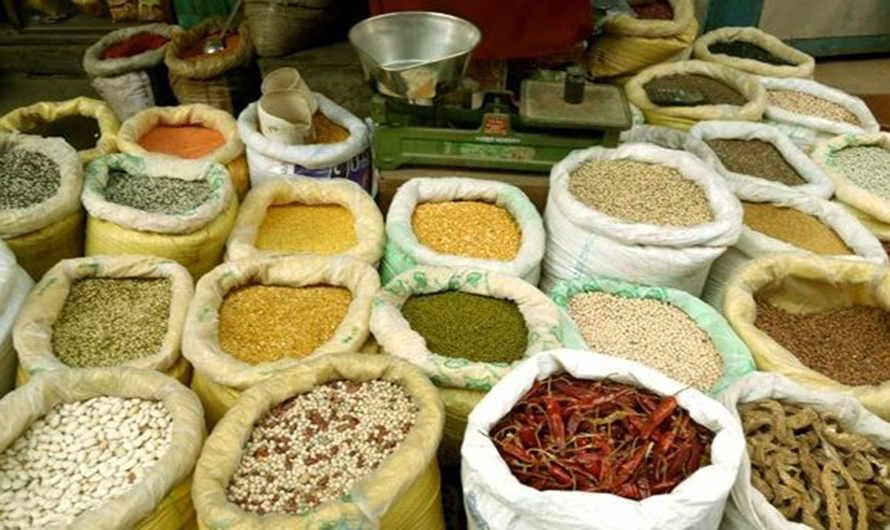
OR
Govt amends Food Act to impose five years of imprisonment for production and sale of non-edible items
Published On: May 8, 2024 10:00 AM NPT By: Dilip Paudel

KATHMANDU, May 8: The government has amended the law related to food, imposing up to five years of imprisonment for the production and sale of non-edible products that pose a threat to human health.
By amending the Food Act-2023, the government has included provisions for regulating the production, processing, export, import, transportation, sale, distribution, or storage of substandard food items, with fines up to Rs 500,000.
The government has tightened regulations following instances where manufacturers produced and sold food items harmful to human health due to lenient penalties.
The government had introduced the 'Bill to Amend and Consolidate Food Hygiene and Quality Laws – 2081 BS' to safeguard consumer interests. President Ram Chandra Paudel has authenticated the bill presented by the government.
The Department of Food Technology and Quality Control (DFTQC) has declared that actions will be taken against any unlicensed food businesses, unauthorized food imports, or production, processing, export, import, storage, transportation, or sale of contaminated food.
Matina Joshi Baidya, director-general of the DFTQC, said that the amended law aims to hold accountable those endangering public health. "The amended act holds producers, transporters, and sellers accountable," Baidya stated. "Any sale of contaminated or substandard food items will face legal consequences."
The new law proposes fines up to Rs 300,000 and imprisonment for the production, processing, export, import, storage, transportation, or sale of substandard food.
Selling food without proper labeling will result in a six-month imprisonment or a fine of up to Rs 50,000, or both. The government can take action against producers, processors, importers, transporters, storers, sellers, or service providers violating the law.
The government is actively pursuing measures to ensure the production and sale of quality products, thereby making the market transparent.
The DFTQC has introduced new provisions to ensure food quality and regulate market conditions. The bill includes special provisions regarding food standards, labeling, import, export, and industry.
Upon implementation, these regulations are expected to streamline the market and impose stricter penalties to bring about reforms in food technology.
The amended Act aims to protect human health and consumer interests by revising legal provisions related to food hygiene, determining food quality based on scientific evidence, and regulating it at all stages of the food chain.
It prohibits the sale and distribution of contaminated food and criminalizes the manufacture, processing, export, import, storage, transportation, or sale of any contaminated food for human consumption.
In tests conducted by the DFTQC, about eight percent of consumer goods, including food, oil, milk, tea, spices, water, biscuits, lentils, cashews, raisins, rice, beer, chili powder, were found to be of poor quality.
The DFTQC has been taking action by filing a case against the production and sale and distribution of substandard and contaminated food products that are contrary to food laws and regulations. The legal system is going to be made strict so that those who sell substandard materials can be brought under the legal ambit.
The sale of food items that are rotten, contaminated with garbage, or stored in toxic conditions, rendering them unfit for human consumption, including those derived from infected animals or harmful plants due to disease, is strictly prohibited.
Food items containing pathogenic microorganisms, harmful elements, or chemicals that exceed the specified maximum limit are banned.
Selling and distributing radioactive substances exceeding specified limits, which may have immediate or long-term effects, including residues of interferon, pesticides, veterinary drug residues, bacteria exceeding maximum limits, artificial poisons, and hormone imbalancing chemicals, are strictly prohibited at any stage of the food chain.
You May Like This

Rapper Fetty Wap faces at least 5 years in prison for drugs
Rapper Fetty Wap pleaded guilty Monday to a conspiracy drug charge that carries a mandatory five-year prison sentence, admitting that... Read More...

NRB preparing to introduce banknotes of Rs 100 and Rs 500 denominations with security threads
KATHMANDU, Nov 3: The Nepal Rastra Bank (NRB) is making preparations to introduce new notes of Rs 100 and Rs... Read More...
Just In
- CIAA files corruption case against two employees of Tikapur Land Revenue Office
- Infrastructure development gains momentum up in Gandaki Province
- Iran presidential helicopter in 'accident', search underway: state media (Updated)
- Water sources in CNP drying up due to drought, putting wild animals at risk
- Nepal to host int’l dialogue on climate change issues of mountainous countries
- JSP-N Chairman Yadav moves SC to bar seven defected lawmakers from parliamentary activity
- NEPSE surges 45.69 points, daily turnover increases to Rs 5.25 billion
- Police constable murder case: Connection to drugs and eve teasing revealed!












_20240311121839.jpg)





Leave A Comment